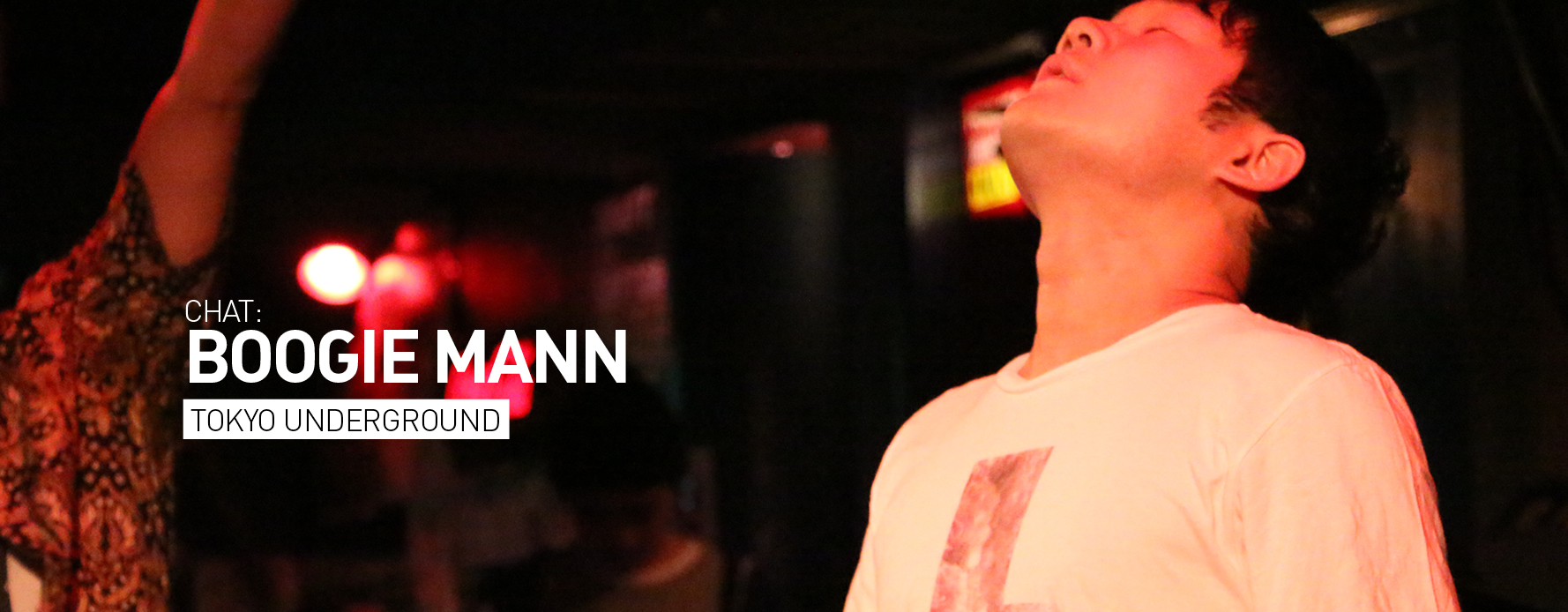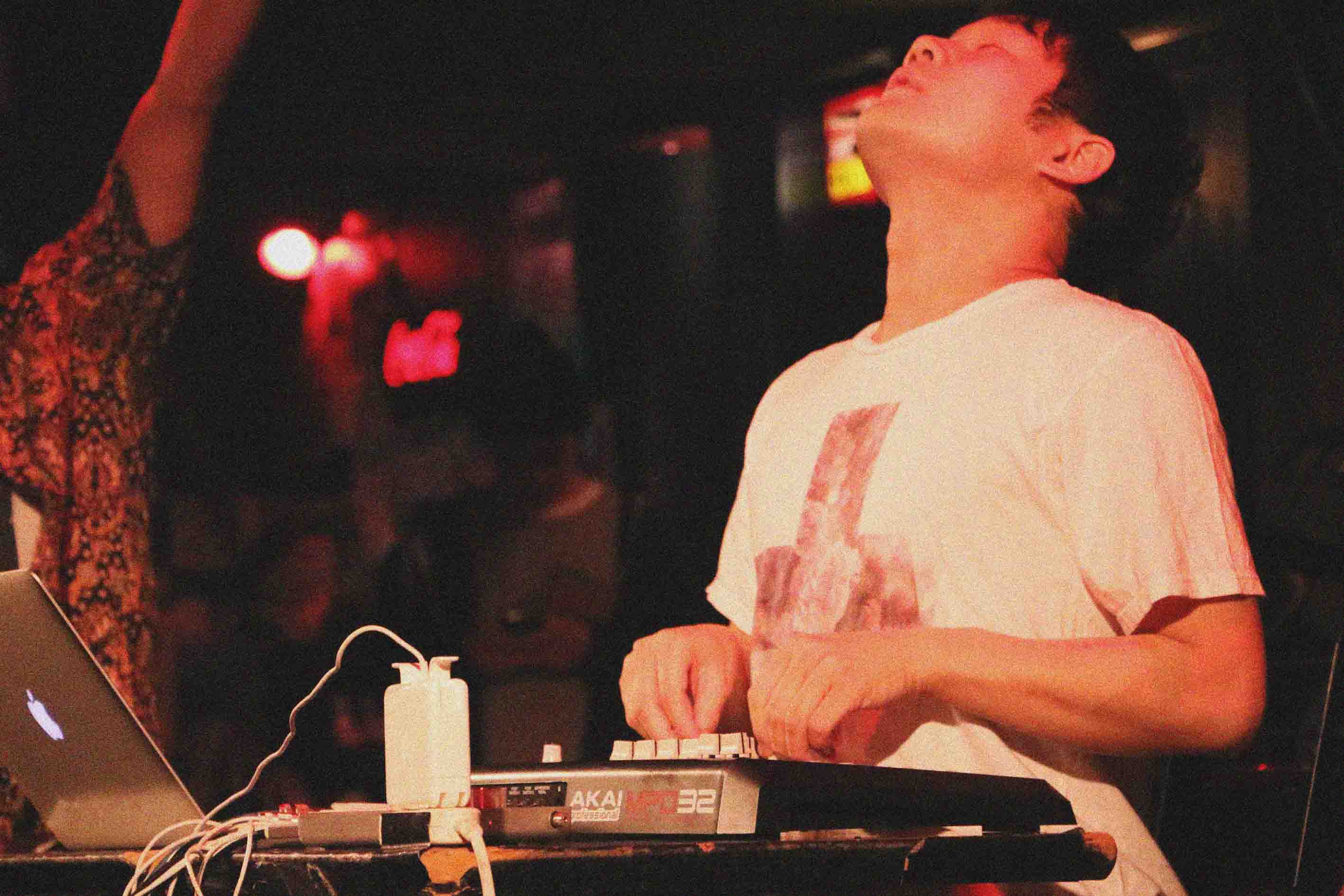Boogie Mann: Deft Juke
 Thirsty for JUICE content? Quench your cravings on our Instagram, TikTok and WhatsApp
Thirsty for JUICE content? Quench your cravings on our Instagram, TikTok and WhatsApp

Like the vinyl and record store culture in Japan, Tokyo’s juke/footwork scene has been portrayed in a manner that’s best described as nigh mythical. Like a spiritual successor to the Nippon dubstep scene in terms of the hyperbolic journalistic coverage they’d gained, the likes of Vice and Chicago Reader paint an image of a thriving Western subculture not just appropriated, but improved by the Japanese as well. JUICE stumbled upon an eager juke DJ-producer named Boogie Mann while crate-digging at Red Bull Music Academy Tokyo’s Culture Fair. Striking a conversation with the young’un, we decided to dig into Tokyo’s juke scene via an active member of the culture.
When and how did you get into juke?
Maybe two years ago. The first time I listened to juke was a track by DJ Diamond off Planet Mu’s Bangs & Works compilation at a record shop. Before juke, I made glitch, so when I heard juke for the first time, I thought it was glitch. Because both used short samples and loops. I thought it was a very strange music – the first time I didn’t actually like it.
What changed your mind then?
I watched the dance, footwork. At Tower Records, I watched a movie with footwork and I thought it was very surprising, I felt like it was the future. Another reason is Machinedrum because before juke, I dug post-dubstep music and was influenced by acts like him.
They’ve been a lot of coverage on the juke and footwork scene in Japan. But living it here in Tokyo, what is it really like?
Many foreigners think that juke is big in Japan. It’s difficult to say, but every weekend we could listen to a juke DJ, so that’s a great thing. There are not many juke parties though, it’s more like bass music parties invite juke DJs to play – so we can play with bass music DJs. But there are a few juke-only parties like Shin-Juke at Shinjuku Loft, it’s a venue for rock gigs but the owner likes juke. So he’d invite rock bands, juke DJs, chillwave DJs, and post-dubstep DJs. There is also Booty Tune, a juke label. They started it very early before everyone else. Like Traxman, they were playing ghetto house before juke. Booty Tune pretty much introduced juke and footwork to Japan. Sometimes they hold events as well. One of them is High & Low held in Aoyama Hachi.
What do you use to produce and DJ?
I use Ableton Live with Traktor, I don’t use hardware, computer only, because I don’t like having a lot of cables (laughs).
Listening to your tracks on SoundCloud, they still sound very much like the original Chicago juke. Ever thought of localising the genre to something more ‘Japanese’?
It’s difficult. Sometimes I use Japanese vocals when a singer or rapper asks me to produce for them, but it’s difficult to programme Japanese vocal samples a la juke. Maybe because I only listen to English language juke that I find it difficult, but we must try regardless – this isn’t only juke’s problem either. I do wonder though, if I make a juke track using Japanese language, would foreigners accept that?
Hell yes.
Making original ‘Japanese juke’ is important, but I want to try to master the original juke first. Last year, I went to Berlin for two months and I hit the clubs every weekend, and I made this new friend. He was familiar with Japanese juke, so he invited me to play at a club. So I played in Berlin but they didn’t dance to my tracks, so I thought maybe the juke I make is only good for Japan.
We’ve seen and heard Japanese juke DJ-producers, what about footwork, the dance itself, though?
You read an article about footwork in Japan, right? A lot of people who read it think there are a lot of Japanese footworkers, but the fact is it’s not true. But a lot of our audience would try to footwork, despite whether they can or not (laughs). Our parties have that mood.
Speaking of audience, what are the average numbers like for a juke party?
Local DJs, maybe 50 or 100 fans at most. When someone like Traxman comes, maybe 500.
Not bad. What are your plans to get the juke scene in Tokyo as big as the articles claim it to be?
Next album, I’m hoping to launch it overseas. I feel like many people read about the scene here and think it’s hot, they know that we have footwork, but they don’t know many Japanese footwork tracks or albums. This is very sad, so I want to try to get people to know more about the artistes. For it to be bigger, we need a great album. There is a lack of a great juke album in Japan.
From the perspective of someone in the know, who are the juke and footwork figures here who are actually making a name out of themselves?
DJ Fulltono, CEO of Booty Tune. He’s a great DJ, his style is original, his juke is very minimal. And me (laughs), because I make tracks for famous Japanese singer and rapper. The CD which has my track sells! As for footworkers, Takuya and Weezy are very famous, they belong to Chicago footwork crews – Takuya is Havoc and Weezy is The Era.
That’s impressive, how did they manage to join the Chicago crews?
Takuya uploaded his footwork video on YouTube and the Chicago peeps saw it. Weezy actually went to Chicago last summer, I have an article about it, they met a lot of legends.
You should visit Chicago yourself, a la DJ Kenn!


 Get Audio+
Get Audio+ Hot FM
Hot FM Kool 101
Kool 101 Eight FM
Eight FM Fly FM
Fly FM Molek FM
Molek FM